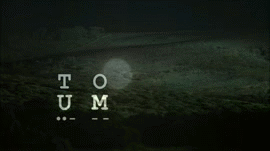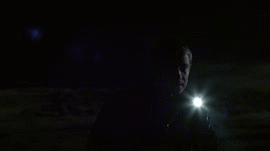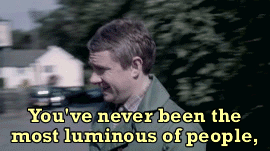
BBC Sherlock Fan Forum - Serving Sherlockians since February 2012.
- Ho Yay
- Cipher Expert
 Offline
Offline 
- Registered: September 12, 2015
- Posts: 126
Re: Johnlock: The Official Debate
Harriet wrote:
Ho Yay wrote:
But they aren't and that's the reason why they are romantic tropes. That's the whole reason why they are studied.
One can actually study film making? You mean, at uni?
I have acquaintances that went to a uni with film making in it, but romantic tropes are for all media, so I guess even other universities have them. Literary devices are surely studied by someone professionally and as we can see from the wikia by many other people.
- Vhanja
- One More Miracle
 Offline
Offline 
- From: Sandnes, Norway
- Registered: December 11, 2014
- Posts: 6,607
Re: Johnlock: The Official Debate
nakahara wrote:
[
Once again, I take it for a sexual hint based on ballance of probability. Ballance of probability does not excludes other interpretations, still, it favours most probable explanations.
I go for sexual meaning because it´s being corroborated by the story of TSOT as a whole: Sherlock jealous of Sholto, Mary baiting him for it, Sherlock and John being almost photographed together as a pair, Sherlock´s speech and declaration of love to John (he uses the word "love" not "friendship" verbatim here) + Sherlock never ever glues Lestrade´s or Molly´s head on paper although they are his dear friends too, plus, he behaves very differently to them than to John although they like him, saved his life even, etc.
These romantic tropes in total corroborate my impression of romance here.
If those are examples of romantic tropes, then they are good examples of how romantic tropes can also be interpreted as friendship tropes as all those examples are easily explained as that as well.
__________________________________________________________________________________________________________________________________________
"We'll live on starlight and crime scenes" - wordstrings

Team Hudders!
- nakahara
- Threatened Knighthood
 Offline
Offline 
- Registered: February 22, 2014
- Posts: 11,979
Re: Johnlock: The Official Debate
Vhanja wrote:
Interestingly enough, I seem to recall a debate on this forum where I said that the one true interpretation would be the one of the author/creator of a work. And got most of the forum against me because the point of art was subjective interpretation, and that no interpretation was more true than any other.
Oddly enough, this doesn't apply to Johnlock. Here, we are dealing with established Truthisms where - if you disagree - that leaves you open to jokes, sarcasm and told straight out that you are simply wrong and view it from a heteronormative view.
So much for an open debate.
Open debate means that you are free to discuss anything, not that you cannot be opposed in debate.
Did anybody prevent you from stating your arguments about romantic tropes or any other thing?
Last edited by nakahara (January 27, 2016 9:28 pm)
-----------------------------------
I cannot live without brainwork. What else is there to live for? Stand at the window there. Was there ever such a dreary, dismal, unprofitable world? See how the yellow fog swirls down the street and drifts across the dun-coloured houses. What could be more hopelessly prosaic and material? What is the use of having powers, Doctor, when one has no field upon which to exert them?

- Harriet
- Most Human Human Being
 Offline
Offline 
- From: 110A Piccadilly
- Registered: August 24, 2012
- Posts: 9,887
Re: Johnlock: The Official Debate
Vhanja wrote:
Oddly enough, this doesn't apply to Johnlock. Here, we are dealing with established Truthisms where - if you disagree - that leaves you open to jokes ....
For sure, we had enough people enjoying bum jokes tonight ![]()
But seriously, you didn't answer my question "what about the ones that are not in doubt for you?" yesterday, and not today. So I guess I will never learn .... I don't need a debate which ones and how many, but I'm curious how you deal with the ones you acknowledge yourself.
Eventually everyone will support Johnlock. Independent OSAJ Affiliate
... but there may be some new players now. It’s okay. The East Wind takes us all in the end.
- Vhanja
- One More Miracle
 Offline
Offline 
- From: Sandnes, Norway
- Registered: December 11, 2014
- Posts: 6,607
Re: Johnlock: The Official Debate
No, but I don't find all the retorts done in a polite manner.
__________________________________________________________________________________________________________________________________________
"We'll live on starlight and crime scenes" - wordstrings

Team Hudders!
- nakahara
- Threatened Knighthood
 Offline
Offline 
- Registered: February 22, 2014
- Posts: 11,979
Re: Johnlock: The Official Debate
Vhanja wrote:
If those are examples of romantic tropes, then they are good examples of how romantic tropes can also be interpreted as friendship tropes as all those examples are easily explained as that as well.
Friends are usually jealous that their best pals had another friends before them? ![]()
-----------------------------------
I cannot live without brainwork. What else is there to live for? Stand at the window there. Was there ever such a dreary, dismal, unprofitable world? See how the yellow fog swirls down the street and drifts across the dun-coloured houses. What could be more hopelessly prosaic and material? What is the use of having powers, Doctor, when one has no field upon which to exert them?

- Ho Yay
- Cipher Expert
 Offline
Offline 
- Registered: September 12, 2015
- Posts: 126
Re: Johnlock: The Official Debate
Vhanja wrote:
Interestingly enough, I seem to recall a debate on this forum where I said that the one true interpretation would be the one of the author/creator of a work. And got most of the forum against me because the point of art was subjective interpretation, and that no interpretation was more true than any other.
Oddly enough, this doesn't apply to Johnlock. Here, we are dealing with established Truthisms where - if you disagree - that leaves you open to jokes, sarcasm and told straight out that you are simply wrong and view it from a heteronormative view.
So much for an open debate.
I'm not arbitrarily establishing a truth, I'm supporting a claim with detailed explanation and documented proof based on a known language, romantic coding. A debate seeks to establish something by confrontation.
If some claims are heteronormative a queer person should feel free to bring it up since they are damaging to them and their community.
- Vhanja
- One More Miracle
 Offline
Offline 
- From: Sandnes, Norway
- Registered: December 11, 2014
- Posts: 6,607
Re: Johnlock: The Official Debate
Harriet wrote:
But seriously, you didn't answer my question "what about the ones that are not in doubt for you?" yesterday, and not today. So I guess I will never learn .... I don't need a debate which ones and how many, but I'm curious how you deal with the ones you acknowledge yourself.
I did reply - I don't have the list in front of me, so I wouldn't know if any of them are not in doubt to me. But I wrote "some" because I prefer not to be too assertive and black-or-white in a debate about interpretations.
__________________________________________________________________________________________________________________________________________
"We'll live on starlight and crime scenes" - wordstrings

Team Hudders!
- Vhanja
- One More Miracle
 Offline
Offline 
- From: Sandnes, Norway
- Registered: December 11, 2014
- Posts: 6,607
Re: Johnlock: The Official Debate
nakahara - a friend can be jealous of someone who would take their friend away from them and change their relationship, absolutely.
Ho Yay - and I have given you reasons for why you can disagree without it being from a heternormative view.
__________________________________________________________________________________________________________________________________________
"We'll live on starlight and crime scenes" - wordstrings

Team Hudders!
- Harriet
- Most Human Human Being
 Offline
Offline 
- From: 110A Piccadilly
- Registered: August 24, 2012
- Posts: 9,887
Re: Johnlock: The Official Debate
Edit: Vhanja
Ok, so "some" was not meant to be "some" - I see. Yes, that helps me understand.
Last edited by Harriet (January 27, 2016 9:34 pm)
Eventually everyone will support Johnlock. Independent OSAJ Affiliate
... but there may be some new players now. It’s okay. The East Wind takes us all in the end.
- Vhanja
- One More Miracle
 Offline
Offline 
- From: Sandnes, Norway
- Registered: December 11, 2014
- Posts: 6,607
Re: Johnlock: The Official Debate
nakahara - Oh, sorry, I read your question wrong. Disregard my last reply. I saw that as a joke about Sherlock being offended that a) John saw someone as more unsociable than him and b) that John had had such a close friendship with someone else before him.
__________________________________________________________________________________________________________________________________________
"We'll live on starlight and crime scenes" - wordstrings

Team Hudders!
- Ho Yay
- Cipher Expert
 Offline
Offline 
- Registered: September 12, 2015
- Posts: 126
Re: Johnlock: The Official Debate
Vhanja wrote:
nakahara - a friend can be jealous of someone who would take their friend away from them and change their relationship, absolutely.
Ho Yay - and I have given you reasons for why you can disagree without it being from a heternormative view.
You actually stopped at "They are".
- Vhanja
- One More Miracle
 Offline
Offline 
- From: Sandnes, Norway
- Registered: December 11, 2014
- Posts: 6,607
Re: Johnlock: The Official Debate
Harriet wrote:
Edit: Vhanja
Ok, so "some" was not meant to be "some" - I see. Yes, that helps me understand.
Good. Glad I could help. ![]()
__________________________________________________________________________________________________________________________________________
"We'll live on starlight and crime scenes" - wordstrings

Team Hudders!
- nakahara
- Threatened Knighthood
 Offline
Offline 
- Registered: February 22, 2014
- Posts: 11,979
Re: Johnlock: The Official Debate
Vhanja wrote:
nakahara - Oh, sorry, I read your question wrong. Disregard my last reply. I saw that as a joke about Sherlock being offended that a) John saw someone as more unsociable than him and b) that John had had such a close friendship with someone else before him.
But is this something you normally see in movies or TV shows? (i.e. is it a trope?) Friends being jealous over other friends of their best pals?
Because to me this is romantic trope being added into TSOT for comical effect.
-----------------------------------
I cannot live without brainwork. What else is there to live for? Stand at the window there. Was there ever such a dreary, dismal, unprofitable world? See how the yellow fog swirls down the street and drifts across the dun-coloured houses. What could be more hopelessly prosaic and material? What is the use of having powers, Doctor, when one has no field upon which to exert them?

- Schmiezi
- Reichenbach Survivor
 Offline
Offline 
- From: NRW, Germany
- Registered: August 10, 2012
- Posts: 5,478
Re: Johnlock: The Official Debate
Vhanja, please don't get me wrong but I think the reason why this discussion gets so harsh is that you are not familiar enough with how to analyze a TV show. Like analyzing poems or novels, there are "rules", codings that you can study at Uni. They are not made up by fans but confirmed by myrads of analysises. (-eseses What the hell is the plural of that word?)
Ho Yay uses them the way you do at Uni.
If you go and read ten serious books on romantic codings on TV, you will find certain tropes coming up again and again.
You can't just say "They are also used for friendship" when there is no proof for that in cinematography so far and when friendship is not what they usually stand for.
It's a bit like when I tell my pupils that parallel lines meet at infinity and they tell me "No, they don't".
---------------------------------------------------------------------------------------------------------------------------------------------------------------------------------
I still believe that love conquers all!


"Quick, man, if you love me."
- Liberty
- Moderator
 Offline
Offline 
- Registered: June 29, 2014
- Posts: 5,992
Re: Johnlock: The Official Debate
Vhanja wrote:
nakahara wrote:
[
Once again, I take it for a sexual hint based on ballance of probability. Ballance of probability does not excludes other interpretations, still, it favours most probable explanations.
I go for sexual meaning because it´s being corroborated by the story of TSOT as a whole: Sherlock jealous of Sholto, Mary baiting him for it, Sherlock and John being almost photographed together as a pair, Sherlock´s speech and declaration of love to John (he uses the word "love" not "friendship" verbatim here) + Sherlock never ever glues Lestrade´s or Molly´s head on paper although they are his dear friends too, plus, he behaves very differently to them than to John although they like him, saved his life even, etc.
These romantic tropes in total corroborate my impression of romance here.If those are examples of romantic tropes, then they are good examples of how romantic tropes can also be interpreted as friendship tropes as all those examples are easily explained as that as well.
I agree. All of these fit very well with non-sexual love. The Sholto one in particular. Sherlock appears to be jealous of Sholto because he used to be John's best friend (and Sherlock imagined himself as unique) - there's no indication that Sholto was John's lover or that Sherlock suspects he was. Meanwhile, Sherlock isn't jealous of Mary who is John's lover (and wife).
Sherlock doesn't glue Molly or Lestrade's head on the picture because he's trying to get Molly to calculate how much alcohol to get John the right level of drunk - it's John's stag night. Sherlock doesn't care for all his friends equally - John is far above the rest with a deep, close bond.
- Vhanja
- One More Miracle
 Offline
Offline 
- From: Sandnes, Norway
- Registered: December 11, 2014
- Posts: 6,607
Re: Johnlock: The Official Debate
Well, if it's not something you usually see, then I think it's great that they manage to do something original.
Whether you see it as romantic or not depends on how you view the show and their relationship to begin with, I think.
__________________________________________________________________________________________________________________________________________
"We'll live on starlight and crime scenes" - wordstrings

Team Hudders!
- Vhanja
- One More Miracle
 Offline
Offline 
- From: Sandnes, Norway
- Registered: December 11, 2014
- Posts: 6,607
Re: Johnlock: The Official Debate
Schmiezi wrote:
Vhanja, please don't get me wrong but I think the reason why this discussion gets so harsh is that you are not familiar enough with how to analyze a TV show. Like analyzing poems or novels, there are "rules", codings that you can study at Uni. They are not made up by fans but confirmed by myrads of analysises. (-eseses What the hell is the plural of that word?)
Ho Yay uses them the way you do at Uni.
If you go and read ten serious books on romantic codings on TV, you will find certain tropes coming up again and again.
You can't just say "They are also used for friendship" when there is no proof for that in cinematography so far and when friendship is not what they usually stand for.
It's a bit like when I tell my pupils that parallel lines meet at infinity and they tell me "No, they don't".
Well, this just adds to the open debate climate, doesn't it? Only misses the pat on the head.
__________________________________________________________________________________________________________________________________________
"We'll live on starlight and crime scenes" - wordstrings

Team Hudders!
- Liberty
- Moderator
 Offline
Offline 
- Registered: June 29, 2014
- Posts: 5,992
Re: Johnlock: The Official Debate
Well, quick example - the very first trope on the list is the Red String of Fate: Sherlock and John meeting because of saying the same thing to the same person. Of course this could lead to a romance if that was being set up, but there's no need for it do so. Sherlock and John's meeting was very close to the way they met in the original story. Sherlock and John are clearly fated to be together, and the programme is about their relationship. I don't see anything there that screams at me that this means it must be a romance rather than a friendship. I understand that that's what people are saying it means, but I don't agree. The writers are free to use romantic tropes to show aspects of the friendship if they want (or just for fun, or because they like them, etc.). And I think it's important to keep in mind that they are trying to show a very special and unique friendship - not just any old friendship.
Last edited by Liberty (January 27, 2016 9:42 pm)
- nakahara
- Threatened Knighthood
 Offline
Offline 
- Registered: February 22, 2014
- Posts: 11,979
Re: Johnlock: The Official Debate
Liberty wrote:
Vhanja wrote:
If those are examples of romantic tropes, then they are good examples of how romantic tropes can also be interpreted as friendship tropes as all those examples are easily explained as that as well.
I agree. All of these fit very well with non-sexual love. The Sholto one in particular. Sherlock appears to be jealous of Sholto because he used to be John's best friend (and Sherlock imagined himself as unique) - there's no indication that Sholto was John's lover or that Sherlock suspects he was. Meanwhile, Sherlock isn't jealous of Mary who is John's lover (and wife).
Sherlock doesn't glue Molly or Lestrade's head on the picture because he's trying to get Molly to calculate how much alcohol to get John the right level of drunk - it's John's stag night. Sherlock doesn't care for all his friends equally - John is far above the rest with a deep, close bond.
So you are saying, Liberty, that TSOT absolutely cannot be subjected to a "queer reading":
I wonder then, why do they teach Queer Theory at universities, if actual works of art that also have heteronormative reading cannot be subjected to it? Or are other works of art OK, only Sherlock is excluded?
-----------------------------------
I cannot live without brainwork. What else is there to live for? Stand at the window there. Was there ever such a dreary, dismal, unprofitable world? See how the yellow fog swirls down the street and drifts across the dun-coloured houses. What could be more hopelessly prosaic and material? What is the use of having powers, Doctor, when one has no field upon which to exert them?






